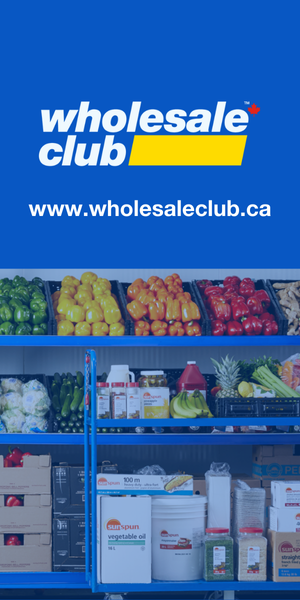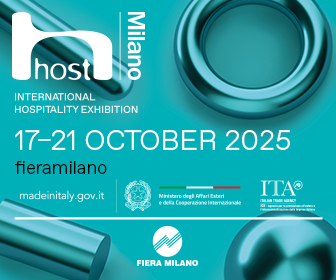One-on-one with Michaela Morris
Michaela Morris wears many hats. She’s a wine writer, educator, speaker, and a judge for wine competitions as well. In her past life, she worked as marketing manager for premium wine importing company and up until 2015, she co-owned a consulting company, offering private and public wine tasting events and cellar management for collectors.
She’s a busy woman but she seems to revel in the possibilities and opportunities that her career offers. When I ask her to pinpoint one aspect of her career that she enjoys most, she tells me that the variety itself is what she enjoys most.
Michaela may have fallen into the wine industry with a chance meeting but since then, as she puts it, “I’ve never looked back.” In 1998, Michaela was in university studying linguistics. On a year-long exchange trip to Burgundy, France to study French, she attended a wine trade show. From networking at this event, she found herself translating a wine company’s website. With this exposure to the wine industry, she delved into wine tasting and you could say it was love at first sip.
Michaela highlights not just the taste, but the history, culture, and the people behind the bottle as the reasons why she loves wine. “The people” she says, “are what make the industry so fascinating.”
As a journalist, she has the chance to connect with a range of people in the wine industry. She’s able to spend time with wine producers, business owners, sommeliers, and more and gain knowledge from them to better her understanding of the industry.
In turn, Michaela is passionate about sharing her extensive knowledge of the wine industry with others as well. She says, “I always have time for eager and enthusiastic people. Those who truly want to learn and truly enjoy learning and the industry, I make every effort to help them out in whatever way I can.”
Mentoring is close to Michaela’s heart, and part of the reason why she chose to take part in the Femmes du Vin event, happening in Toronto, on August 18th, 2019. She explains, “There’s an unfair stereotype of women being jealous of each other, but I’m surrounded by amazing female colleagues, and we all champion each other.”
The wine industry has long been seen as male-dominated. Though Michaela points out the important roles that women have played, and are continuing to play in the industry. Being a woman may once have been a hindrance to entering the wine industry, but Michaela doesn’t see this happening now. “This” she states, “this definitely cause for celebration and part of the reason why events like Femmes du Vin exist.”
Of course, Michaela admits that there is still work to be done to ensure proper and respectful treatment in the industry, though, she believes it is improving. She explains that in the past, inappropriate or unacceptable behaviour by men may not have been called out, especially by fellow male coworkers. However, she has witnessed men with now standing up alongside women to expose negative behaviour.
We asked Michaela to pick her brain on all things wine and she did not disappoint.
Here’s our 10 burning questions we had for Michaela Morris:
What’s your desert island wine pick?
It’s impossible to choose a favourite wine. I will say that French wine was my first love. Then I fell in love with Italian wine and that is still going strong. However, if I was forced to pick only one wine to drink for the rest of my life, it would be Champagne.
How have your travels influenced your appreciation for Canadian wine?
When I started in the industry, Canadian wine was not at the point where it is today. I’ve had the pleasure of being in the industry long enough to see a serious evolution. What has given me a greater appreciation of Canadian wine is sharing it with wine producers and colleagues around the globe. I always bring a bottle of BC wine with me when I travel (usually a traditional method sparkling, Riesling or Syrah) and love seeing people’s surprise and genuine enjoyment.
How has the wine industry changed over the past five years or so?
There has definitely been more embracing of the ‘lesser known’ – especially by a younger generation of drinkers. While the classics are still relevant, consumers can’t always afford the wines of Burgundy or Bordeaux, so we’re seeing a more adventurous drinker. This is reflected on wine lists, in the media and through wine education.
What trends do you see happening in the wine industry in the next few years?
I think concern around climate change is leading to a bigger trend within the industry of championing more ethically and sustainably-produced wines at all levels – from the vineyard and winery to packaging and shipping. Maybe it is a pipedream but perhaps we will be able to influence consumers to select wines based on these merits rather than just on point scores or the label.
What are some of the challenges in the wine industry?
The biggest challenge we are facing is climate change. But with challenges come opportunities for change and innovation. I am inspired by the ideas, efforts, alternatives and technology that some wineries and wine companies are using to respond to issues. Hopefully these more sustainable and environmentally responsible practices will become more mainstream.
Have you seen social media changing consumer behaviour or your business strategy?
Instagram can be a great tool for wineries, but I don’t think many have fully embraced it yet. It provides an opportunity for brands to interact directly with consumers and is an ideal platform to tell their unique story dynamically through real-time pictures. In terms of consumer behaviour, as Instagram is so visual, it has been a benefit to trending wines such as very pale rosés or orange wines for example.
What advice do you have a restaurant owner looking to build their wine program? Is there anything they should or shouldn’t do?
I don’t believe there aren’t any specific must-have or must-avoid wines. Instead, the wine program should reflect the style and philosophy of the restaurant. For example, if the focus is on sustainable, organic ingredients it makes sense to list wines of the same ilk.
If a restaurant owner wants to build a more unique wine program, what advice do you have?
In terms of building a more unique wine program, the key is having the floor staff who can pull it off. Staff training is crucial so that everyone is well-versed enough to guide customers through it. The last thing you want is the wine list to alienate your patrons.
Can building a wine program differentiate a restaurant? How so?
Absolutely a wine program can differentiate a restaurant. Most people choose restaurants because they like the food, atmosphere and service. Providing a place where customers can also discover interesting new wines in an unpretentious manner is another way to keep them coming back.
What advice do you have for someone looking to get into the wine industry?
Be humble, stay curious, and don’t take anything for granted.









